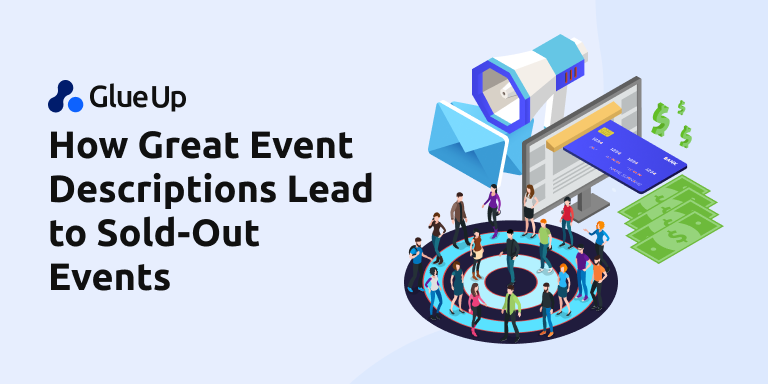
A successful event depends on how much you charge for the tickets. While a high price yields more profit, it may drive your customers away. On the other hand, a cheap price may create a perception of low value.
In the end, there is only one value that can get your customers to sign up - the amount that they are willing to pay. This is known as value-based pricing.
In this article, you will explore a step-by-step guide on how to calculate the value-based pricing for your event tickets.
You will also learn:
- The top 12 pricing ticket strategies
- Steps to create the right event pricing model
- And some examples of ticket pricing from the leading brands
So let’s get started.
What Is the Best Method for Pricing Event Tickets?
What price will convince your potential attendees to register? Can you make a reasonable profit at this price? Will you drive away your customers with this quote?
To answer these questions, let's look at the following pricing ticket method to figure out how can you set the right price of tickets for your event.
Examine Similar Events and Competitors
Taking a look at other events around you will give you an idea of the price range and the expected number of attendees at your event.
Start by examining the event your competitors are organizing or consider other similar ones. Study their landing page, types of tickets they are offering, agendas, and special promotions.
You can also consider events that are located near you to determine the market viability and perceived value of your event.
Calculate Your Break-Even Point and Expenses
Knowing your numbers in advance will help you make confident pricing decisions. Once you have a detailed accounting of all your expenses, you can then estimate how much your tickets should cost. After that, you can calculate your break-even to know your profit.
How to Calculate My Break-Even Cost?
To calculate your break-even cost, use the following two formulas:
Numbers of Ticket Solds
Break-even point (in units) = Fixed costs / (Sales per unit - Variable cost per unit)
In Dollars:
Break-even point = sales price per unit x break-even point in units
Now if the total fixed cost of your event is $10k and the total variable cost is $3 per ticket (per unit). If you are planning to sell each ticket for $15, you can calculate the break-even by the following method.
The number of tickets required to reach the break-even point:
Fixed costs / (Sales per unit - Variable cost per unit) = 10,000 / (15 - 3) = 833 tickets
The total amount of sales required to reach the break-even point:
Sales price per unit x break-even point in units = 15 x 833 = $12,495
According to these calculations, you would need to sell around 833 tickets, or make a sale of $12,495 to reach the break-even point. Once you pass that point, every ticket you sell will generate profit.
Make sure that you keep a track of the fixed and variable costs to get the right calculations.
Forecast Your Ticket Sales
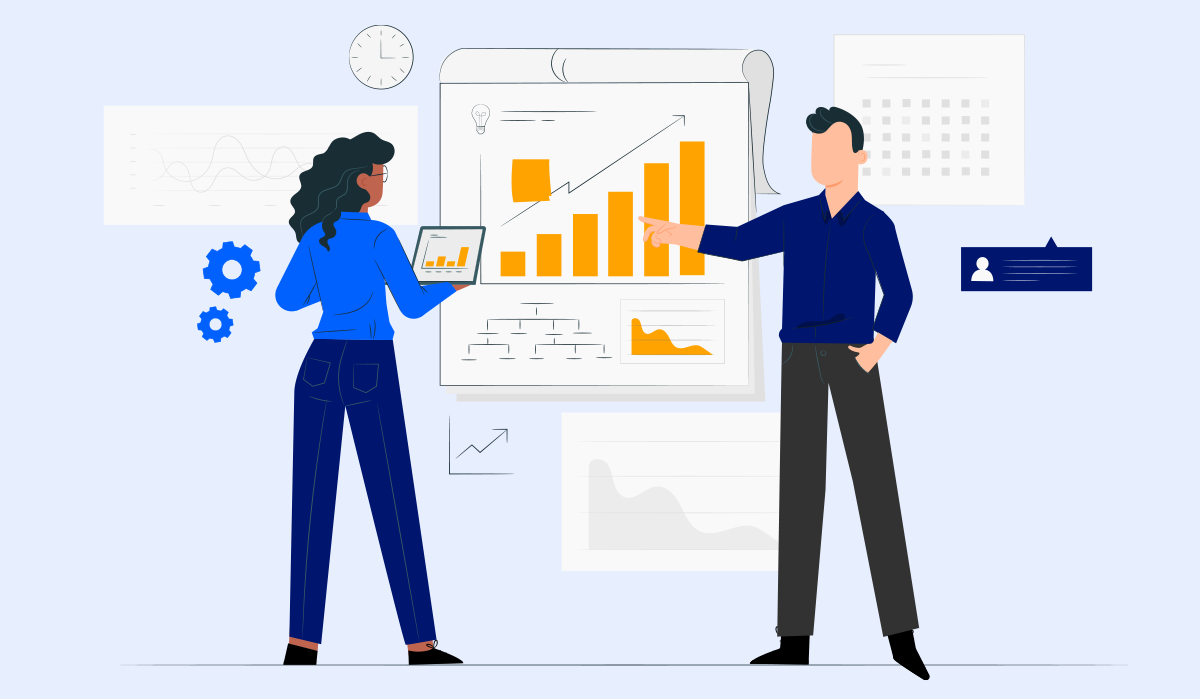
Forecasting your ticket sales considers the following factors:
- Tickets sold during previous events.
- Number of registrations at your competitors’ events (both current and past)
- Location of your event.
Depending on the situation, you can also consider other points such as the capacity of the event venue, the weather forecast on the big day, brand awareness, and other mainstream events.
Divide this number with the breakeven point to determine the minimum pricing for your event to make sure that they are covering all the expenses.
12 Common Types of Ticket Pricing Strategies
1. Early Bird Pricing
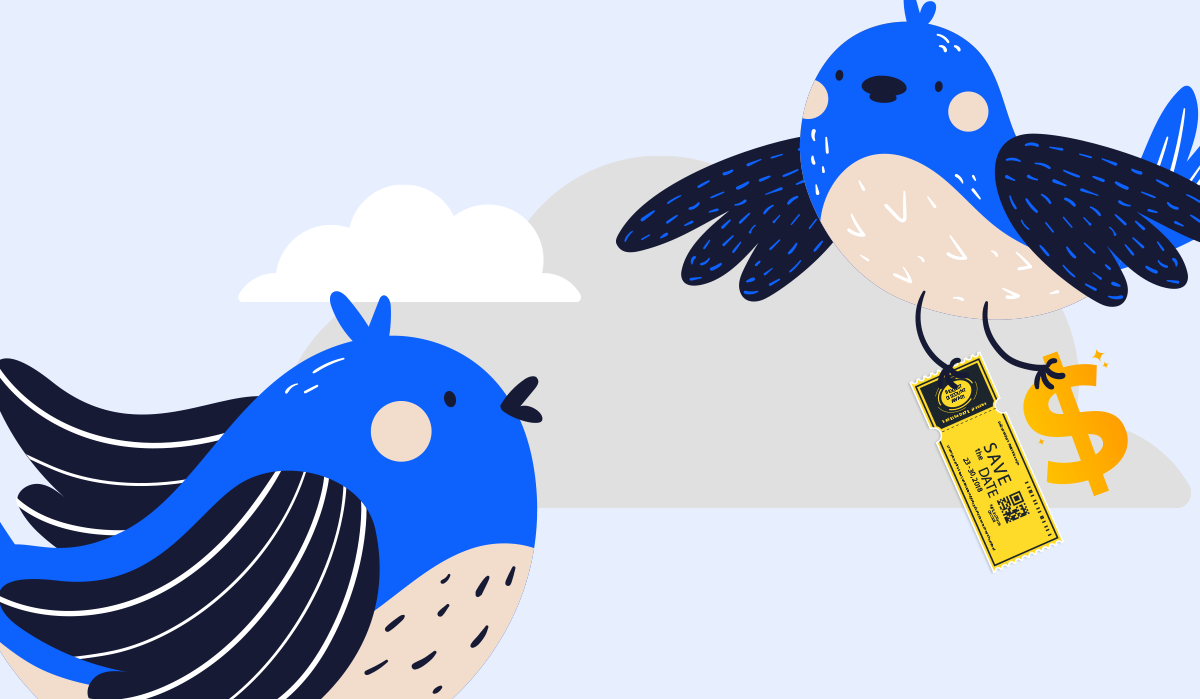
A widely used ticket strategy that attracts customers during the early stages of the booking process is known as the early bird discount.
This is a limited-time deal that offers around 10-25% off on the standard ticket price from the moment the registration opens to a specific expiration date. Though it may vary from the event, the usual end dates for the early-bird end 2-3 months before the main day.
An early bird is a great way to increase engagements and sales during the off-season. Since they include a limited number of offerings accompanied by a strict deadline, they compel people to commit early during the booking process.
Early bird discounts are commonly used during webinars, conferences, lectures, classes, memberships, concerts, flights, hotels, and tours.
Keep in mind that the early-bird discount should be lower than the other pricing tickets during the rest of the registration process, giving early-bird registrants a special deal for committing early.
2. Multi-Tiered Pricing
Another way to boost sales during the early stages of the booking process is by employing a multi-tier pricing strategy. The multi-tier pricing involves selling different tickets at different pricing, including the following example:
20-50 tickets at $75
Regular tickets at $100
Early-bird discounts are great for creating awareness and driving sales at the start of the event. However, multi-tiered tickets drive sales by creating an urgency for first-round buyers to take advantage of additional discounts.
3. Timed Batch Ticket Pricing
Time-batch tickets are similar to multi-tiered tickets in the way that they include different prices. However, unlike these, the prices increases as the event date come closer. Take the following as an example:
Purchase by Jan 15 to receive a $ 100 discount
Get regular tickets after Jan 30
There is no limit to the number of tiers, and you may increase the price as the event nears. Be sure that the increase is substantial enough to motivate buyers to purchase early.
An average increase of 10% is recommended. This makes the price difference more appealing to the potential attendees and motivates them to buy the tickets at a discounted price.
4. Bundled Ticket Pricing
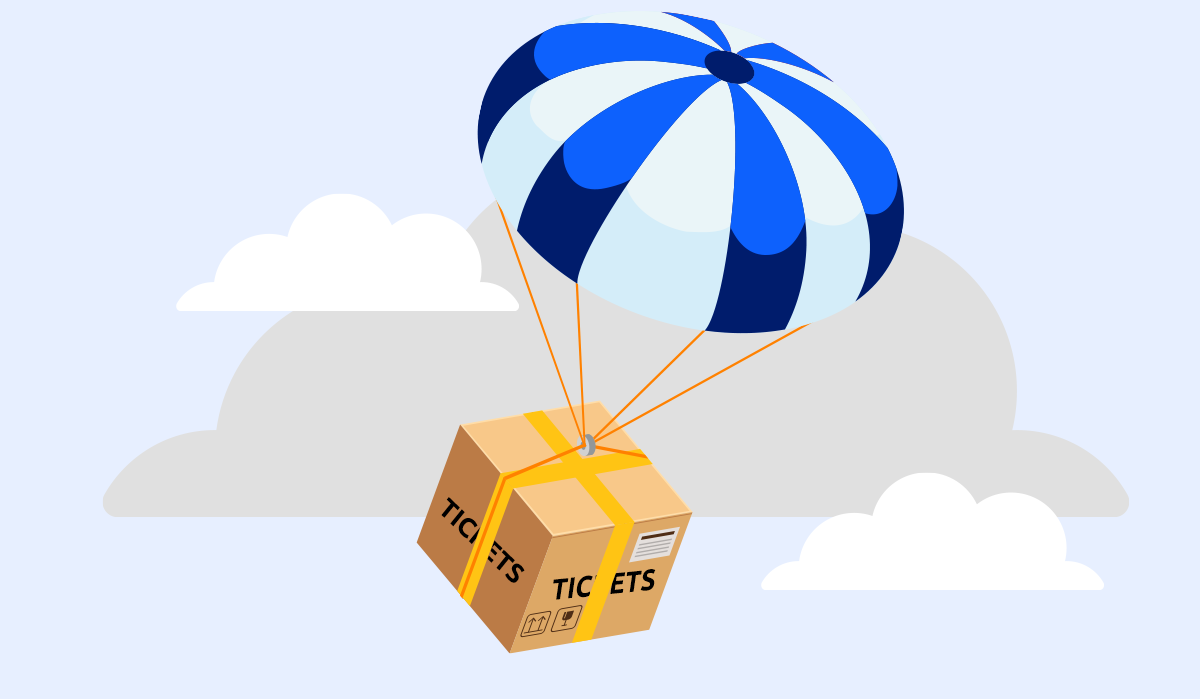
Bundled ticket pricing offers a bundled price for buying in bulk. This pricing strategy helps sell more tickets by conveying a perceived value of saving money by buying in bulk. You can offer ticket bundles by offering 2-in-1 offers or VIP entry packages.
Depending on the type of event or memberships, you can choose one of the following bundle ticket pricing:
- Block Tickets: This is the most common type of bundle ticket which includes selling the bulk of tickets in a single purchase.
- Table or VIP Tickets: The bundle ticket pricing for seats reserved for VIPs.
- Sponsor Tickets: These are only sold to sponsors.
There are no differences between the three ticket bundle types other than how they look on the order page, a ticket bundle gives different access levels to your attendees.
Bundle tickets are also a great strategy when you have multiple offerings for an event or membership. For instance, if you have organized webinars, exhibitions, speed networking, and activities, you can include them all in the bundle tickets.
This strategy also works great when you want to increase the perceived value of low-volume offerings.
5. Regular Vs. VIP Tickets
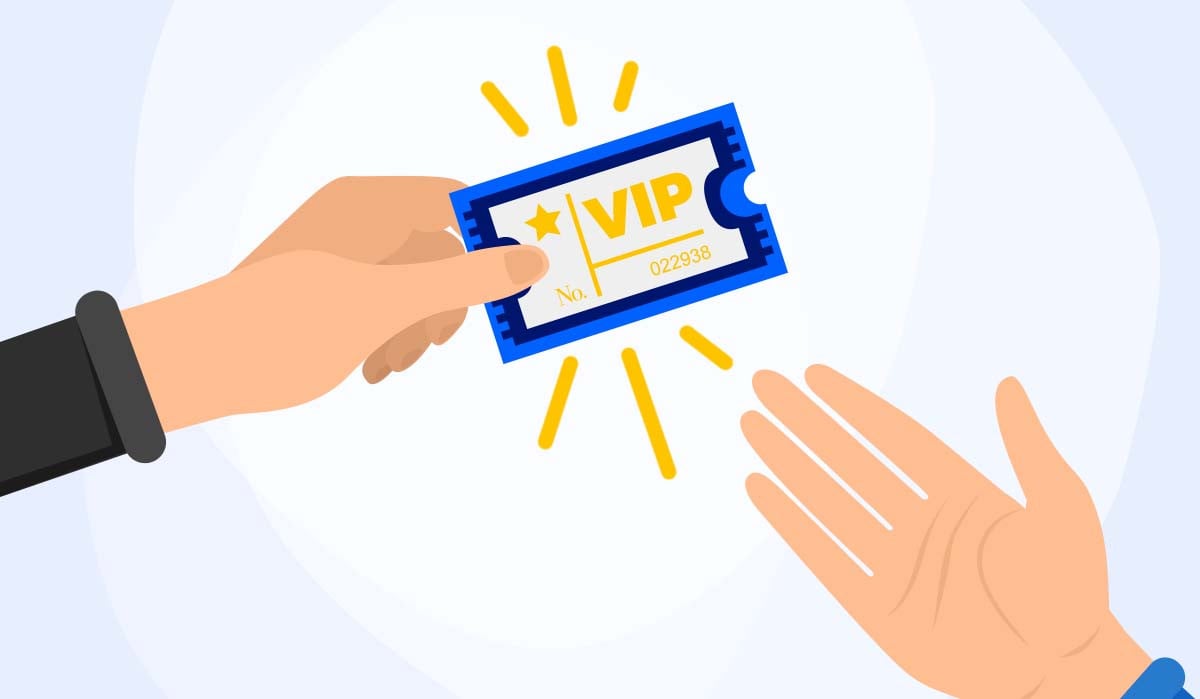
Displaying the comparative prices of regular vs. VIP tickets is a win-win strategy for many events.
Regular tickets are the most affordable on the list and provide access to the event without any extras. They are best for people who are looking for a baseline experience at the most convenient pricing.
On the other hand, displaying VIP tickets with the added benefits leads to a perceived value of exclusivity. They are ideal for attendees who are looking for a premium experience at a high price.
If you are offering VIP pricing, you should confirm how much attendees would be willing to pay. Setting it up too high might turn attendees away.
6. Referral Discounts
Create promo codes for specific segments that can help push sales through referrals. For example, you can create a special code for your key stakeholders, speakers, and exhibitors, so they can share the event with their audience.
This will help increase your promotion reach, as your “partners” will be promoting directly with their audience, who might not necessarily know you and your event.
Partners will feel more motivated to promote the event knowing they are offering a benefit to their audience, while also strengthening the relationship with you. Provide them with assets to share on social media to easily help with the job.
Similarly, you can create promo codes for niche influencers in your industry, so they can share the event with their audience.
7. Last-Minute Ticket Pricing
Another common practice is to keep the eleventh-hour sale price of tickets higher than the earlier sale price.
The earlier sales strategies create an urgency to purchase tickets in advance as the fear of missing out. However, there are always some potential attendees who wait till the last minute to get the tickets.
Selling the last-minute tickets at a higher price helps you make extra sales on the event day and fill the empty spots. Since they know they are getting registered at the door, the price of the tickets will be charged at full price.
8. Special Discounts for Valued Customers
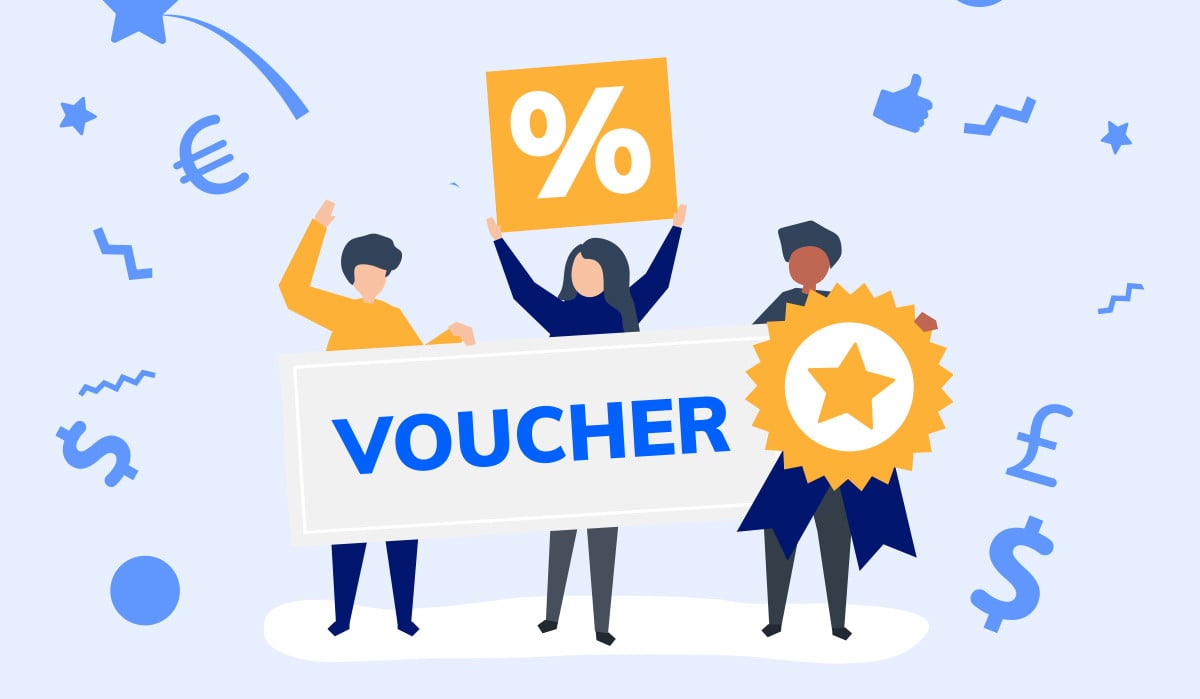
Another option for using pricing schemes for event registration is to offer special discounts to valued customers as a way of rewarding their loyalty.
To show them how valuable they are to your organization, you can use event management software to set up special offers and customize their registration experiences.
A private registration path also ensures that the special codes for your loyal customers are only limited to them and are not offered to other attendees.
9. Flash Sales
Flash sales are great in the retail business but they can be fruitful for bringing in more sales as well.
You can take special dates as an opportunity to promote sales like Black Friday, St. Patrick’s Day, or Easter. Offer a sale or special offer on these days. Make sure to limit the registrations to that day to emphasize the urgency of the special sales.
10. Reserved Seating Tickets
If you are organizing a seated event, you can let your attendees choose the best seat by offering a reserved seating ticket. It provides big value to your potential attendees who want to sit closer to the stage.
It is important, however, to keep the closest tickets at their most expensive while reducing their price as they move back.
11. One-day Vs. Multi-day Pass
If your event lasts for several days, you can introduce a multi-day pass for the flexibility of your attendees. The pass allows them to attend sessions at their convenience at a price they are comfortable with.
You can also offer one-day passes for people who wish to attend one day of the event. Both one and multi-day passes can be provided both for in-person and digital events.
The logistics of these tickets can also be managed more easily using a Radio frequency identification (RFID) device, without the hassle of processing them manually.
12. Email Subscription Discounts
Since EDMs are a popular way of sending invitations to the attendees, you can send a special registration link with discounts to your existing as well as potential customers.
Use interactive, contrasting colors, and top email marketing templates to increase the chances of getting more attendees for your event.
How to Create Event Pricing Models That Maximize Profit?
To determine your ticket price that will provide the highest return on investment and increase ticket sales, research your target markets, competitors, and past events.
Know Your Target Market
Understanding your market is fundamental to making your event a success.
How much will they be willing to spend to attend your event? What will urge them to make registrations?
Gather this data by collecting a survey from past-event attendees or taking a close look at your previous budgets. This will help you set the right price for your event.
Survey past event attendees or research past event budgets to get a ballpark figure for your ticket price. If you dont have the data available, you can use dynamic pricing models to come up with the best pricing strategy.
Select the Best Ticket Pricing Strategy
What will be the best ticket types for the event? How can you create pricing charts that will encourage attendees to register?
To answer that, take a close look at your event type and your audience preferences. Is your event seated? How long will it last? What type of audience will be your attendees?
For example, full-time employees might not be able to attend a 3-day event. In such cases, providing one-day passes can then result in more registrations. As an alternative, bundled discounts will be more effective if your event targets students.
Selecting the right ticket pricing strategy depends on what opportunities you think will appeal most to your audience.
Analyze Your Event’s Demand
You cannot finalize an event as long as your target audience doesn't think it's worth registration for.
To estimate the likelihood of people attending your event, find similar events in your industry and check if they were successful. You should also look for similar events that are currently taking place in your area that might compete with yours.
Research other related events to see what pricing strategies are being used. Consider offering more comprehensive package options or providing a more satisfying experience at a competitive price.
Analyze Historical Data

As mentioned earlier, past events can be an incredibly valuable source of information. They offer useful insights and help you to plan your next event.
Check out your company's data including prices, budget, marketing tactics, number of attendees, and surveys. Brainstorm what areas needed to be improved.
Track Ticket Sales
You can't set the ticket price and sale schedule for your event and forget it.
Develop a flexible pricing model so that you can add more packages or extend the sales limit. Use the registration stats to determine which tickets are selling more.
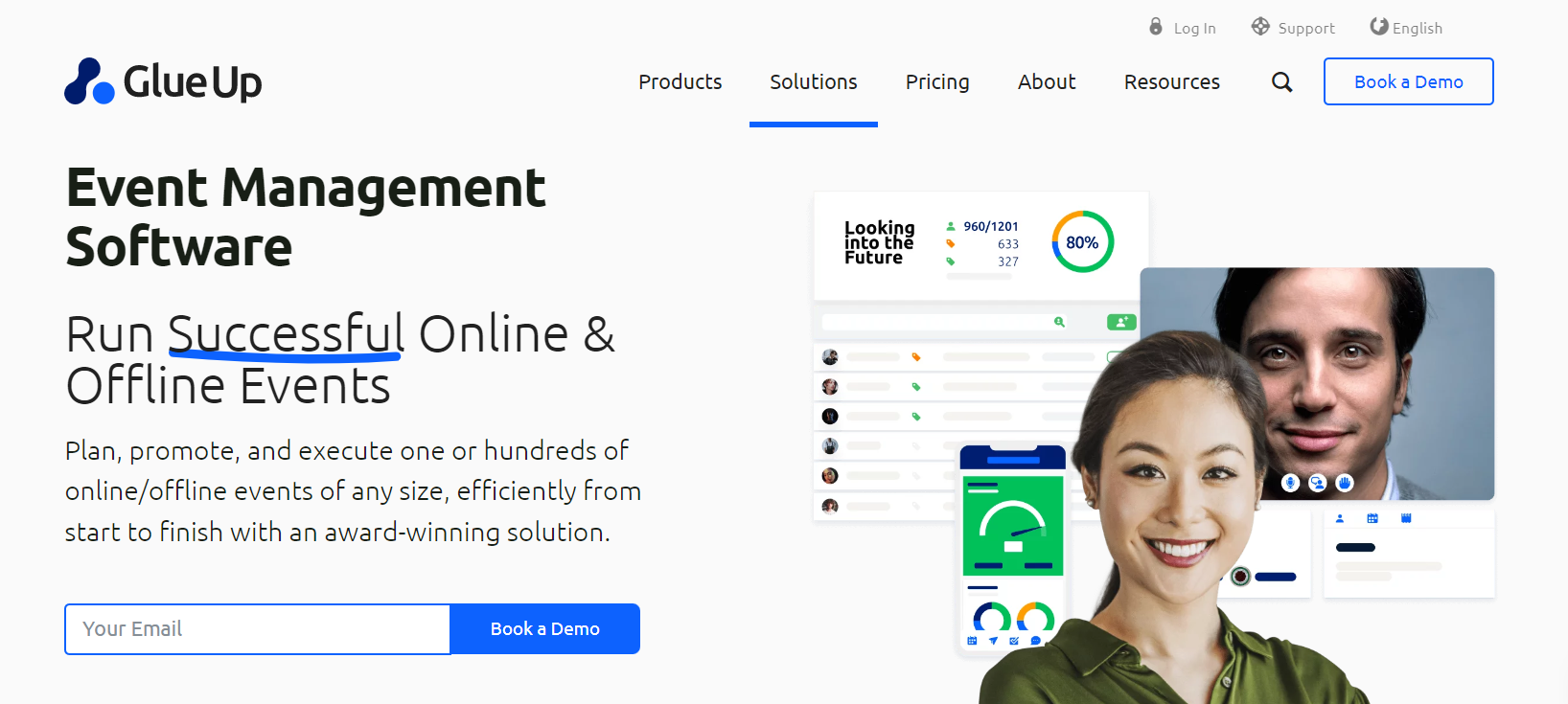
You can also automate registrations using Glue Up’s event management software that can directly get added to your account.
Examples of Event Pricing From Three Leading Brands
Apart from researching competitors and similar events, you can also take inspiration from the leading brands’ pricing strategies:
1. Discounted Memberships by Consumer Technology Association
The Consumer Technology Association (CTA) offers member discounts on its world's largest technology conference, The Consumer Electronics Show.
Three types of passes are available, CES Registrations, Starter Conference Pass, and Deluxe Conference Pass, each with different offerings. People who are members of CTA get an additional 25% discount on the two latter passes with exclusive access to the member lounge.
The strategy, as a result, get more registrations for the event as well as encourages them to join the organization by creating value for its members.
2. Profession-Based Tickets by Salesforce
Salesforce organizes a four-day conference called Dreamforce that demonstrates interesting sessions about future technologies. Along with a full pass, the organization offers special tickets for analysts and sponsors.
Salesforce creates a tailored event experience for these segments of their audience at a price they will find more attractive, thus encouraging them to attend.
3. Early-Bird Tickets for MozCon Conference
A popular event, MozCon illustrates the impact of creating straightforward ticketing options. They offer Early-bird registrations for both members and non-members.
These early-bird registrations aim to reward attendees for their efforts, regardless of their budget.

